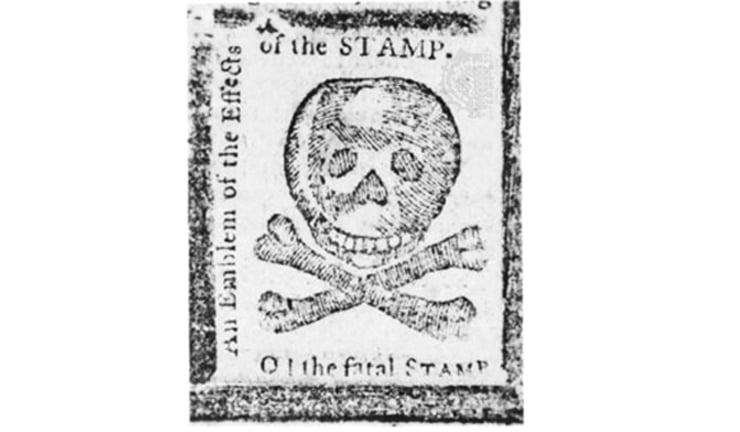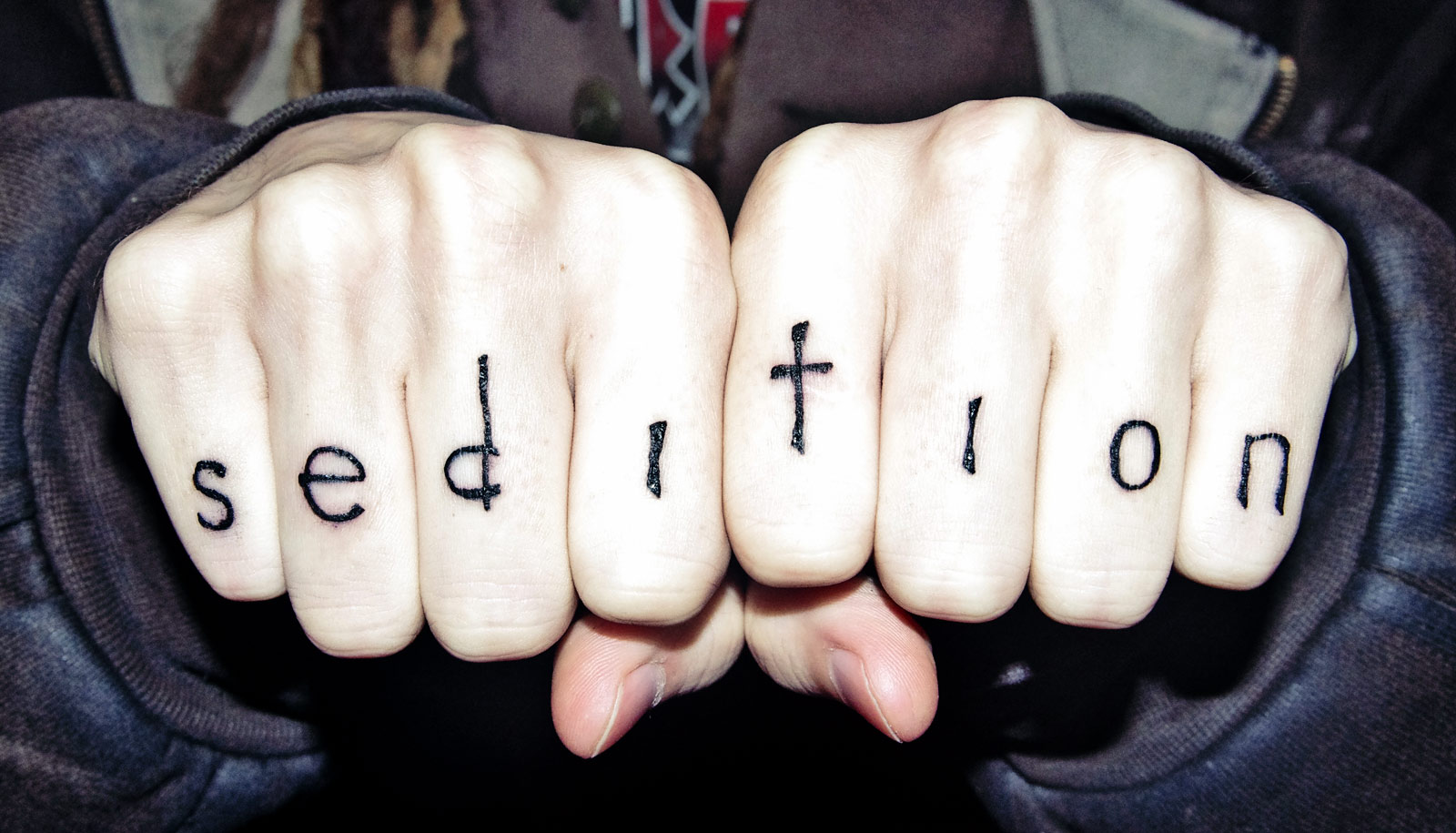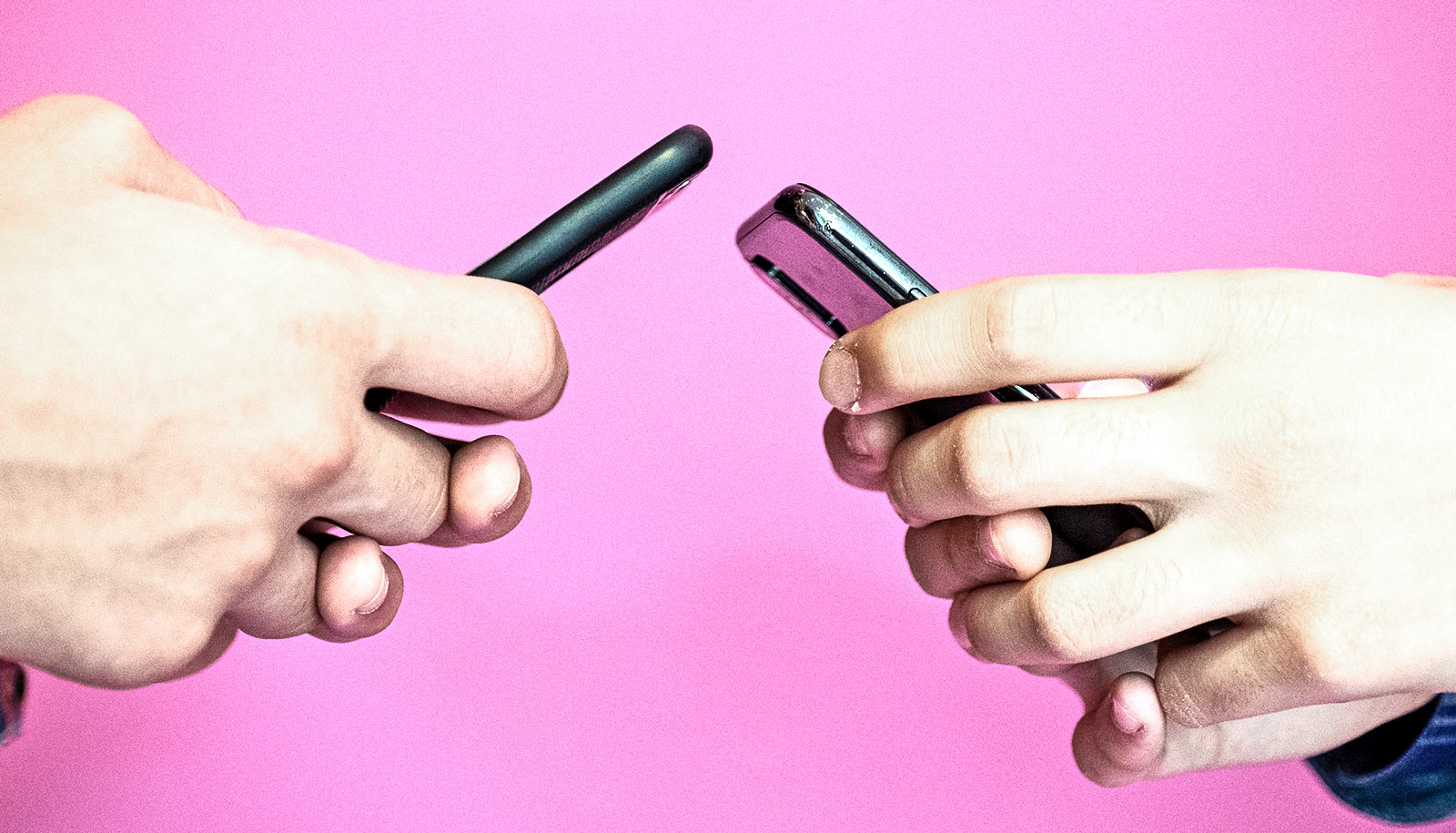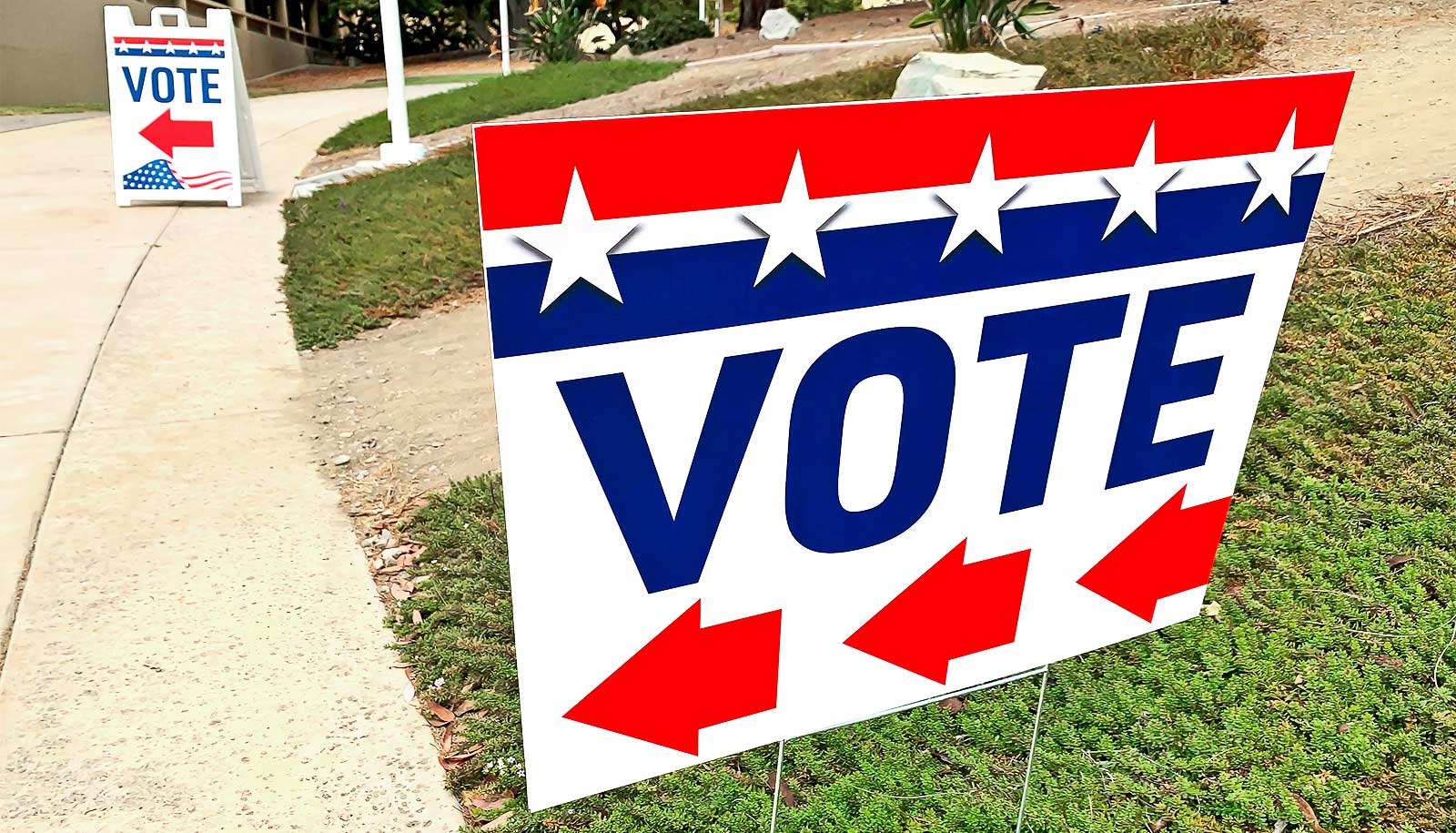Turn on some TV news or check out Twitter and it would be easy to conclude that the political speech in our era is nastier than ever before. What would the founders of our nation—writers of eloquent, reasoned defenses of the freedom of expression as essential for democracy—have made of such crass and vitriolic attacks?
While our 21st-century tools for lobbing invective at our political enemies may be novel, the practice itself is anything but new, New York University journalism professor Stephen D. Solomon relates in the book Revolutionary Dissent: How the Founding Generation Created the Freedom of Speech (St. Martin’s Press, 2016).
“Back in the colonial times, so much of what they were saying was offensive.”
Were the journalists and politicians of 1780 suddenly transported our era, he suggests, they might happily join in the mudslinging.
Their right to do so was hard fought. As British subjects, American colonists had inherited, along with other rules and protections of English common law dating back to the 13th century, a legal prohibition against seditious libel—or speaking critically of the government or its officials. In the American colonies before 1700 there were 1244 prosecutions for seditious speech—a crime for which punishments included confinement to the stocks, public whippings, and worse (one offender in Virginia had his tongue pierced with an awl; another in Massachusetts got his ears cut off).
But later, when colonists felt that their rights were being impinged upon by Parliament across the ocean—beginning, notably, with the 1765 Stamp Act that taxed printed materials like newspapers, magazines, and even playing cards in the colonies—they spoke up, to hell with the local sedition laws.

(Credit: via Wikimedia Commons)
As radical newspapers like the Boston Gazette took direct aim at the British prime minister with verses like “To make us all Slaves, now you’ve lost Sir! The Hope / You’ve but to go hang yourself. / We’ll find you the rope,” and the Sons of Liberty hanged and burned effigies of various officials, seditious expression flourished in all sorts of wickedly creative forms, from broadsides and pamphlets and songs to cartoons—and juries sympathetic to the patriot cause declined to convict.
It wasn’t pretty—but that’s a free press.
In the years leading up to the Declaration of Independence, loyalists complained about a rowdy new class of people who “attend at taverns, where they talk politicks, get drunk, damn King, Ministers, and Taxes; and vow they will follow any measures proposed to them by their demagogues, however repugnant to religion, reason and common sense.”
The thing about all that damning and politicking is that once it gets started, nobody is immune—and once the British were out of the way the framers of the new government did not hesitate to turn their poison pens on each other, including in debates over how the Constitution and its amendments should be crafted. (The anti-Federalist Patrick Henry worried that it “squinted toward monarchy” and warned that “your President may easily become King,” for example. Other critics burned copies of the document to show their opposition to its ratification.)
It was James Madison who most powerfully articulated the need for what became the First Amendment, arguing that “opinions are not the objects of legislation,” and “the censorial power is in the people over the Government, and not in the Government over the people.”
Then as now, political feuds often turned personal: In the 1790s, Thomas Jefferson employed the journalist James Callender to attack President John Adams, only to have Callender later turn against him, reporting that he had fathered children with his slave Sally Hemings. Callender was also the guy who broke the story of the first great sex scandal in American history, publishing a series of pamphlets about Alexander Hamilton’s affair with Maria Reynolds. It wasn’t pretty—but that’s a free press.
In the histories many of us remember from grade school, the colonies fought a war to become independent, and once victorious set up a new society with new rules—including the freedom of expression. But in Solomon’s telling, it’s the other way around: it’s an earlier war—the battle against the strictures against dissent—that made the revolution possible.
To celebrate Independence Day last year, NYU’s Eileen Reynolds talked with him about what the founding generation might have made of social media:
You argue that had the colonists not openly flouted the law against seditious libel, there couldn’t have been a revolution.
Yes. In order to have a revolution you have to enlist people—you have to turn people on to your ideas. The only way that you can do that is to use whatever mass communication tools that you have at the time, to send your case out to the people and get them excited. So, yes they had to reject the laws of seditious libel in order to get the protest moving throughout society, and to make it clear to the British on the other side of the water it wasn’t just the wealthy merchants and politicians who were against the Stamp Act—it was nearly everyone.
The Stamp Act was repealed in early 1766, but then Britain had other laws that replaced it, and the protest just grew until independence was declared.
What were the mass communication tools of the time?
When the colonists started protesting the Stamp Act of 1765, it started with newspapers and pamphlets that were largely aimed at the educated classes—politicians, wealthy merchants, people who could not only read but also who were interested in and could understand arguments based on English law and Enlightenment thinkers.
But they had to go beyond that to get widespread support, so they used every means possible to democratize protest. They used songs and verse and cartoons and sermons, and all kinds of symbolic speech that brought in a large number of people to a protest. Thousands of people came out: three or four thousand people in Boston in a town of 16 thousand—proportionally that would be the same as two million people coming to a protest in New York today.
Everything they did was violating the law of seditious libel, because they were criticizing the king, they were criticizing the king’s ministers, they were criticizing parliament, they were criticizing the law. Some of the governors brought seditious libel cases against some of the more egregious protestors, typically the ones that were complaining in print, but they couldn’t get juries or grand juries to bring in an indictment or convict. People did not want to indict or convict a neighbor who was doing nothing more than what they were doing.
Were broadsides the Twitter of their day?
Printing was an expensive, labor-intensive process—that’s one of the reasons newspapers were only published once a week. But the broadside was just one sheet of paper. It was like the sleek, fast cousin to the newspaper or pamphlet. You could write a couple hundred or a thousand words, get it to the printer to set into type and put on the presses, and maybe have something out in half a day. It might be distributed around town or tacked on to a tree or building. That was fast back then. And a broadside might really go after a particular issue or a person.
And just like on Twitter, not everything published was noble and polite.
No, it was definitely messy! In the Boston Gazette there was an article that accused Britain of giving the colonies venereal disease. That’s pretty out there, especially if you think of how it fell on 18th-century ears, in Puritan Boston.
Or think about something like hanging effigies of the British prime minister and the devil together—that would’ve been shocking, way more than we would consider it today. What does the devil mean now? It might bring a smile. But if you go back to 18th century Puritan society, people actually believed in the devil as the representation of all evil. So to put the devil next to the prime minister and the stamp distributor it was about as aggressive you can be in saying you absolutely despise these people.
Where did that anger—and the conviction to disobey laws in shocking ways—come from?
They thought they were being mistreated. They were English subjects and they thought their rights were being denied under Magna Carta and the English Bill of Rights. And Parliament was a long way away and the colonists didn’t want to pay these taxes, so they had to either protest or just accept anything that Parliament sent their way.
I think it’s significant, too, that Boston was the center of all of this. These were generally people who were dissenters to begin with. They came from England as religious dissenters, and founded Boston in the Massachusetts colony on the basis of dissent from the Anglican Church. They weren’t shy and retiring.
Were they also hypocritical, sometimes? In shutting down press from loyalists they disagreed with?
Those were excesses but they weren’t widespread. The loyalists published a lot of material—newspapers, pamphlets, and so on. There was a lot of arguing back and forth between the loyalists and the patriots, through opposing articles, pamphlets, and letters.
There was a lot of energetic speech that actually delved into issues, but, as with any movement, there were some radicals among the patriots who thought it would be a good idea to knock some heads in. And in some unfortunate cases they actually did that. There were incidents here in New York where they broke into loyalist presses and destroyed them. As in political movements today, there is a whole spectrum of believers, some more rational than others.
The Alien and Sedition Acts of 1798, which allowed for deporting foreigners, restricting immigrant voting, and punishment of speech critical of the federal government, was another early test of the concept of free speech. It seems like some of the same people who advocated for it when it came to protesting against the British waffled when they realized that right could also be used to criticize them.
The Sedition Act is a really interesting part of the story. On the one hand it was a blatantly political move by the Adams administration to punish its critics. But you can also look at it as the first example of many in American history where free speech rights were violated because of fears regarding national security. This of course happened during the Civil War, the two World Wars, and also during the Cold War.
Unfortunately we tend to sacrifice civil liberties during times of crisis. The Adams administration defined that period of near war with France as one such time. The idea was that the French were terrible, uncivilized people, and that French people in the United States, once a war broke out, would take the side of France and be an internal subversive force.
As a First Amendment scholar, are you often asked to weigh in on debates about free speech on college campuses?
Yes, it comes up a lot. I actually added a class to my freshman honors seminar to address the concept of offensive speech, and we read cases about what the Supreme Court has decided. We talked about speech codes, safe spaces, and some of the controversial stuff that is going on at Yale, Missouri, and other colleges. It’s on everybody’s mind.
There’s a lot of controversy, because in order to comply with Title IX universities police a lot of speech. Some of it, like threats against individuals and harassment that seriously limits a person’s ability to participate in the educational program, is not protected by the First Amendment. But some speech proscribed by speech codes is protected by the First Amendment. In fact, every campus speech code that has gone before the courts has been struck down because it goes too far in regulating speech. Those cases involved only public universities that are subject to the First Amendment. Private universities, not being governmental institutions, are not, although under academic freedom they still try to adhere to First Amendment values.
What do you think the founding generation that you write about in your book would make of college students demanding rules against speech they deem hateful or offensive?
Back in the colonial times, so much of what they were saying was offensive. Not all speech is erudite and conducted on a high level—not now and not back then. You had your pamphlets that went deeply into English history and the writings of Enlightenment thinkers and all that. But then there was speech that was vitriolic and mean-spirited, obnoxious attacks on individuals and groups.
The problem with punishing offensive speech—and the Supreme Court has pointed this out—is that you will often suppress ideas in doing so, ideas that we would all benefit in discussing. And the Court has pointed out that offensiveness is a vague standard. What’s offensive? How do you define it? It’s very subjective—we’re all offended by something. And who’s the arbiter? Who makes those decisions? To delegate that responsibility to a government or university official would be like going back to Henry VIII’s censors in the 1500s.
Do you really want government or university officials ruling on what you can and cannot say? If you are at a university, you should be able to think for yourself and prepare yourself for the outside world—some of which is nasty and brutish. You can’t expect all speech to be of the kind that you would make at dinner with the Queen.
Source: New York University



